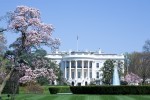 On President’s Day, we honor two great men who have led this country through its creation and one of its most trying times – namely George Washington and Abraham Lincoln respectively. But today I honor the First Ladies who have helped care for this nation and in turn have been caregivers for family members.
On President’s Day, we honor two great men who have led this country through its creation and one of its most trying times – namely George Washington and Abraham Lincoln respectively. But today I honor the First Ladies who have helped care for this nation and in turn have been caregivers for family members.
Hillary Clinton, Nancy Reagan, Barbara and Laura Bush and the caregiving pioneer, Rosalynn Carter, are passionate advocates for our nation’s 65 million caregivers because they have taken the caregiving journey themselves.
 Hillary Clinton – Caregiving Champion
Hillary Clinton – Caregiving Champion
In 2011, Hillary Clinton lost her 92-year-old mother, Dorothy Rodham. While the details of her mother’s passing and possible illness were kept private from the invasive world of 24/7 news media, Clinton has been a long-time advocate of the nation’s caregivers when she was a Senator from New York. She supported several pieces of proposed legislation which offered more services to support those family members who are providing 80 percent of the long-term care to keep a loved one living at home as long as possible.
In an interview from Clinton’s campaign days for the Democratic presidential nomination, she credited her mother with giving her the tools — and toughness — to enter politics. In the end, her mother had also given her daughter the tools to be a compassionate caregiver.
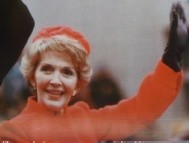 Nancy Reagan – The Loving, Long Good-bye to a Spouse with Alzheimer’s
Nancy Reagan – The Loving, Long Good-bye to a Spouse with Alzheimer’s
Nancy and Ronald Reagan’s touching affection for each other was evident in the letter former President Reagan wrote to tell the world he was suffering from Alzheimer’s disease. In this letter, President Reagan not only helped shine his celebrity spotlight on a disease many Americans did not understand, but he also highlighted the concern he had for Nancy who would be caring for him. He understood the difficult emotional toll it would take on his wife and as the disease progressed, and the last 10 years of his life he did not even recognize her.
As the caregivers of today’s more than five million Americans diagnosed with Alzheimer’s disease know, Nancy lived the last 10 years of her husband’s life known to dementia caregivers as the long good-bye. While Nancy had the resources to care for her husband in ways most Americans do not, the emotional toll it took on her cannot be ignored.
What was perhaps most heartwarming was that the strained relationship Nancy had with her stepchildren and with her own son and daughter, actually improved over the course of President Reagan’s disease diagnosis and decline. Family dynamics are sometimes difficult to navigate during caregiving and can lead to added stress and strife. But, in this instance, it brought a family closer together which is one of the gifts that can come from caregiving.
Since President Reagan’s passing, Nancy has become a passionate advocate for Alzheimer’s disease awareness and education and especially advocating for the research around embryonic stem cells that can hopefully lead to a cure. She also speaks about her personal caregiving journey and the need to recognize caregivers as a crucial part of the care team around a loved one.
In the last few years, Nancy has needed the care of her family more than ever having suffered from several falls – one in which she broke her pelvis without realizing it until the persistent pain drove her to the doctor who finally diagnosed the fracture. More than 2 million older Americans suffer from falls requiring emergency room care and every 29 minutes a senior dies at home from a fall according to the Centers for Disease Control and Prevention (CDC).
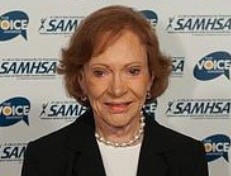 Rosalynn Carter – Caring for Parents On Both Ends of Her Life
Rosalynn Carter – Caring for Parents On Both Ends of Her Life
Long recognized as one of the pioneers of the caregiving movement, Rosalynn Carter is known for her famous description of the life event of caregiving in America:
You have been a caregiver
You are a caregiver
You will be a caregiver
Or someone will be caring for you
In her book, Helping Yourself Help Others – A Book for Caregivers, former First Lady Rosalynn Carter writes, “We can learn to approach caregiving as a blessing as well as a challenging task.”
She knows of what she speaks firsthand: Rosalynn was only 12 years old when her father was diagnosed with terminal leukemia. As the eldest daughter, she helped care for her ailing father and supported her mother by also caring for her younger siblings. She took up caregiving again for several relatives with cancer after she left the White House and most recently was caregiver for her mother who died in 2000 at age 94.
Rosalynn’s gift to caregivers comes from a lifetime of understanding the challenges – emotional, physical and financial – that accompany caring for a loved one. A long-time devoted and determined advocate for those Americans with mental health issues, Rosalynn Carter is also behind the founding of the Rosalynn Carter Institute (RCI) for Caregiving at Georgia Southwestern State University in Americus, Georgia.
The mission of the RCI is to establish local, state and national partnerships with organizations focused on quality, long-term home and community based services to help caregivers. The RCI activities include a variety of advocacy, academic, and awards and scholarship programs. While many of the caregiver programs are Georgia-based, these programs are examples that help serve as models for nationwide caregiver support, education and training.
Mrs. Bush 41 and 43
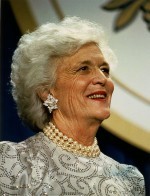 Last holiday season, Barbara Bush was called into service as caregiver to her husband, former President George Herbert Walker Bush known as “Bush 41.” Bush suffered from terrible bronchitis which prompted a hospital stay and time in the intensive care unit when his fever spiked. Although age 88, Bush has been a vital senior, skydiving for a recent birthday and traveling the globe as a peace ambassador with former rival President Clinton. Discharged in January, Barbara is stepping into that role that so many octogenarian spouses are: caregiver. But it is a role she has played before for her child with a chronic illness. While the stress of the presidency has a tendency to prematurely age the men who have held office, it was Barbara who suffered incredible stress and depression and subsequent “white” hair after caring for her ill child and then experiencing the premature death of her four-year-old daughter Robin to leukemia.
Last holiday season, Barbara Bush was called into service as caregiver to her husband, former President George Herbert Walker Bush known as “Bush 41.” Bush suffered from terrible bronchitis which prompted a hospital stay and time in the intensive care unit when his fever spiked. Although age 88, Bush has been a vital senior, skydiving for a recent birthday and traveling the globe as a peace ambassador with former rival President Clinton. Discharged in January, Barbara is stepping into that role that so many octogenarian spouses are: caregiver. But it is a role she has played before for her child with a chronic illness. While the stress of the presidency has a tendency to prematurely age the men who have held office, it was Barbara who suffered incredible stress and depression and subsequent “white” hair after caring for her ill child and then experiencing the premature death of her four-year-old daughter Robin to leukemia.
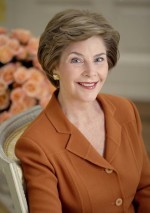 Laura Bush, an only child who grew up in the oil town of Midland, Texas, played caregiver to both her mother and her father. While campaigning with her husband George Bush who was running for governor of Texas, her father was diagnosed with Alzheimer’s disease. While Laura played back-up to her mother who was primary caregiver, she poignantly wrote in The Shriver Report: A Woman’s Nation Takes on Alzheimer’s about the impact to families when Alzheimer’s disease happens.
Laura Bush, an only child who grew up in the oil town of Midland, Texas, played caregiver to both her mother and her father. While campaigning with her husband George Bush who was running for governor of Texas, her father was diagnosed with Alzheimer’s disease. While Laura played back-up to her mother who was primary caregiver, she poignantly wrote in The Shriver Report: A Woman’s Nation Takes on Alzheimer’s about the impact to families when Alzheimer’s disease happens.
“What my mother noticed first was that my father could no longer fill out bank deposit slips. He would stare at the lines on the forms, a look of confusion washing over his face. So Mother began to make the deposits for him. We never got a diagnosis of Alzheimer’s or a specific form of cognitive failing. But we saw his mind erode. Once, he asked our daughter Barbara to get him some ‘B & Bs.’ He meant M&Ms, but he kept saying ‘B & Bs.’ In her 10-year-old way, she understood him and came out of the grocery store with the brown bag of the bright candy just the same.”
Laura stepped in again to care for her mother, Jenna Welch, who was diagnosed with and survived breast cancer when she was 78. Laura’s support of Susan G. Komen for the Cause and her activism on behalf of women’s risk of heart disease has led her to play a leading role in women’s and caregiver health issues. She is an ambassador for The Heart Truth campaign created by the National Heart, Lung and Blood Institute and dedicated the inaugural display of the First Ladies Red Dress Collection at the John F. Kennedy for the Performing Arts in 2005.
 First Lady, First Daughter – Sandwich Generation Champion
First Lady, First Daughter – Sandwich Generation Champion
Our current First Lady Michelle Obama joined the ranks of caregiver growing up as the daughter of a father with multiple sclerosis. Her experience in helping to care for a father with an autoimmune disease currently affecting more than 400,000 people in the U.S. with 200 more people diagnosed every week gave her early insights to the impact of caregiving on families. Michelle has been a true champion of the Sandwich Generation – those caregivers squeezed between caring for two generations – children and older parents.
While women may be seen as “the power behind the throne,” these First Ladies are proof that women also put the heart into caregiving.
This is adapted from Sherri Snelling’s upcoming book, A Cast of Caregivers – Celebrity Stories to Help You Prepare to Care, published by Balboa Press and available now.

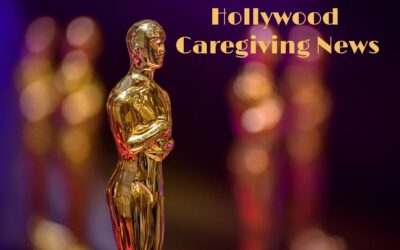
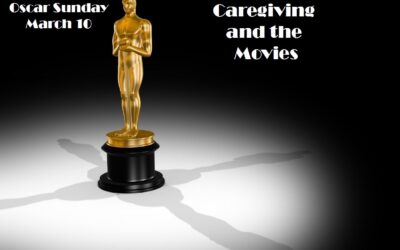

0 Comments
Trackbacks/Pingbacks